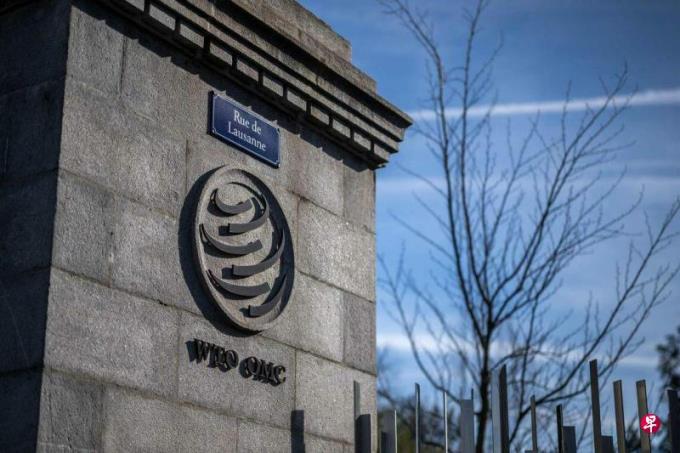
In this sense, the World Trade Organization's legal system has been like the Zhou royal family that declined during the Spring and Autumn Period and the Warring States Period, and it is no longer able to solve the trade dispute between the great powers.To this day, the competition of great powers has expressed more or less. In the foreseeable future, the established rules are ignored and promoting competition with naked strength will become the mainstream form of Sino -US interaction.
On March 26, China's subsidies for new energy vehicles in the United States launched dispute resolution procedures in the World Trade Organization (WTO), requiring negotiation with the United States.According to the WTO dispute resolution procedures, this is the first step in formal "litigation". The case number is DS623.The reason for China is that the inflation Reduction Act passed by the United States in 2022, based on the name of "climate change" and "low -carbon environmental protection", formulate discriminatory subsidy policies for new energy vehicles to use products such as the United States and other regions.As a premise of subsidies, Chinese products are excluded, "distorting fair competition, severely disrupting the global new energy vehicle industry chain and supply chain, violating the rules such as the National Trade Organization's National Benefits and the Most Western Treatment of the WTO, and China has resolutely opposed it."
As far as the common sense of basic law, the allegations of the Chinese side are completely correct. The selective subsidy behavior of the United States violates the cornerstone of the World Trade Organization's legal system: the principle of non -discrimination.This principle requires that the WTO member states generally give goods and manufacturers, services and providers, providers, investment and investors' national treatment and the most beneficial treatments from other member states.In this case, the United States treats discrimination against Chinese products naked, and in related official explanations, it does not deny that the bill is targeted at China.In this sense, China has not been legal in law.
This is not the first time that China has taken the initiative to confront the United States in trade disputes.After the start of the Sino -US trade war, China launched a dispute resolution process for the Trump administration's punitive tariffs on Chinese products in 2018, namely the 543 case (DS543).The WTO expert team gave China a winning ruling ("Expert Group Report"), and determined that the United States violated the principle of benefit country treatment and tariff binding principles of the most benefited country under the general trade agreement.
This case is more striking is its response in the British and American intellectuals.It is not difficult to admit that related measures in the United States violate the laws of the WTO in the analysis of the matter.However, it is clear that the British and American intellectual elites, with a strong retaliation and gloating mentality on this issue, completely set the rules.New York Times columnist and Nobel Laureate Paul Krugman wrote that the "tough stance made China angry by Bayeon's discriminatory subsidy measures, which shows that he has done it."Cruggman explained: "The new industrial policy in the United States is indeed conducive to domestic production, and ... it may violate the provisions of the WTO."However, the problem is not here, but "but in so many countries, China wants to complain about targeted subsidies, which is a very cheeky behavior."In other words, it is not important whether the US subsidy measures are legal. What is important is that China is not qualified to complain, but it should be allowed to make the United States' illegal measures.
With the same logic, the Financial Times commentator Lana Foroohar also condemned China's "hypocrisy" in accordance with a strong disdain. The reason is that China itself is the planned economy.Various subsidies, so they are not qualified to investigate the US trade protection measures through legal means.
The door of the lawsuit of the WTO is open to all member states.If the United States believes that China's measures violate the WTO law, a series of lawsuits can be initiated in the organization.After all, there are sufficient mechanisms and resources to regulate China's own subsidy issues in terms of existing WTO rules and dispute resolution procedures.From the perspective of international rule of law, suing China is the most legitimate measure.But unfortunately, from Trump, the United States was unsatisfactory because of the results of several cases. By hindering the appointment of the WTO "Judge", he paralyzed the NSCO's appealing agencies.In this sense, the legal system of the WTO is like the Zhou royal family that declined during the Spring and Autumn Period and the Warring States Period, and it is no longer able to solve the trade dispute between the great powers.Nevertheless, the trade disputes to resort to the World Trade Organization, which still shows the respect of the international economic and legal system and occupy the moral highland where the "righteousness" is located.
If it is not the degeneration of intelligence, it is clear that the mentality of the British and American mainstream elites is already. In the competition in East and West, if you can achieve the target of benefits through legal means, you should adhere to the international rule of law; if the legal means are rightIf the growth of strength is slow, you can decisively abandon and laugh at the legal means, although the relevant legal system is led by the United States.
The competition of great powers has developed to this day. The institutional elites of the big power have fallen to the degree of chilling.This shows more and less. In the foreseeable future, the established rules are ignored, promoting competition with naked strength will become the mainstream form of China -US interaction.
The author is a professor of law school in Hong Kong University, Director of China Law and Comparative Law Research Center




